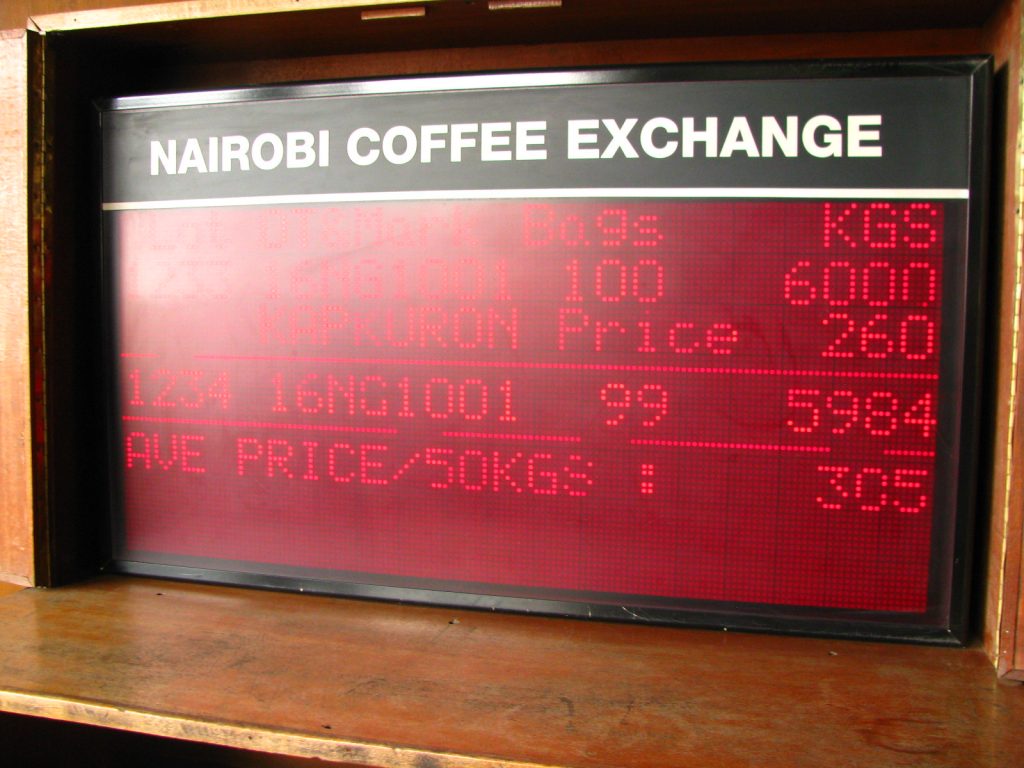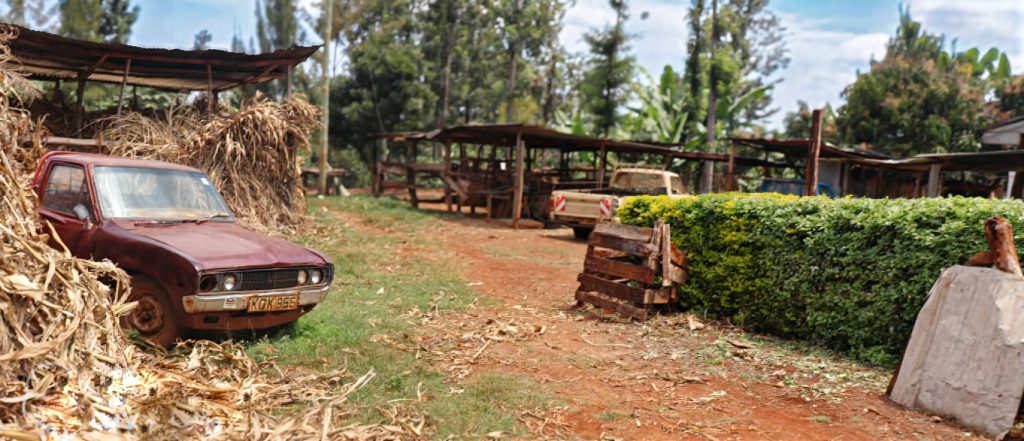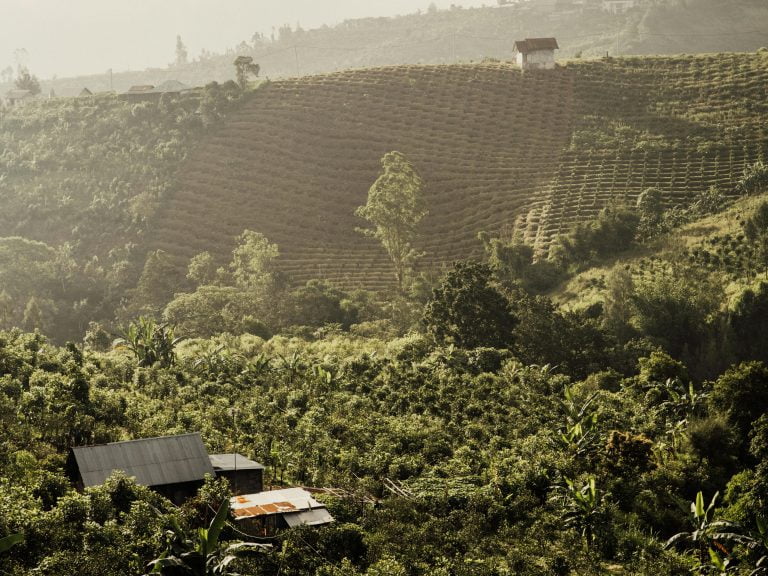This month we delve into the intricate and multifaceted world of Kenyan coffee! Situated on the eastern coast of Africa, coffee was only introduced to Kenya by the British in the late 19th century but despite their late start, they now produce some of the highest quality coffee in the world. The highlands’ fertile volcanic soils, a perfect climate, and the nation’s focus on quality coffee have made Kenya’s beans highly sought-after.

The Nairobi Coffee Exchange: A Double-Edged Sword
At the heart of Kenya’s coffee industry is the Nairobi Coffee Exchange (NCE), an institution with an 80-year legacy. Approximately 90% of Kenyan coffee is sold through the NCE. Their auction system is supposed to reward farmers for high quality coffees: the higher the quality, the higher the auction price. This system offers benefits like price transparency, a steady supply chain, and immediate payments. However, it’s not without its drawbacks. Corruption and bureaucratic inefficiencies have held the NCE back in several ways. It makes it very difficult to discover the origins of coffee and despite the intent, prices can be unfair for farmers.
Despite these hurdles, the NCE has played a pivotal role in upholding the high standards and global reputation of Kenyan coffee. Professional cuppers at the NCE taste and evaluate each batch for its flavor, aroma, acidity, body, and aftertaste. Such stringent quality controls have significantly enhanced the overall quality of Kenyan coffee.
Kenyan Coffee Processing: The Art of Double Washing
Kenyan coffees are usually processed using a method called double washing. This involves removing the skin from the coffee fruit and fermenting overnight, then soaking the seeds in clean water to wash away the remaining fruit. This process enhances the flavor development and produces a wide range of aromas and flavors that can be compared to candy, fruit, or wine. Kenya coffees have a juicy mouthfeel, lively acidity, and sparkling, sweet-tart tropical and stone-fruit flavors, that widen the spectrum of what’s possible in coffee.

Njeruri Estate, The Road Less Traveled
Njeruri Estate, the home of this month’s coffee, is a small farm in Kirinyaga County, Kenya, established in the 1960s and currently owned by Esther Wangere. They’re part of the 10% of coffee farms that bypass the traditional auction system, allowing for better profits and communication. The lot we purchased is from two cultivars that were developed by Scott Agricultural Laboratories (SL) in the 1930s: SL-28 and Ruiru 11. SL-28 came from a single wild tree found in Tanzania, and is known for its exceptional cup quality and drought resistance. Ruiru 11 is a hybrid of the Catimor and the SL-28 varieties, is resistant to coffee berry disease and coffee leaf rust. These cultivars give Njeruri Estate’s coffee its characteristic phosphoric shine and fruity flavor. We immediately fell in love with this coffee’s smooth body and bright, soaring flavors that remind us of caramel, raspberry sorbet, Skittles, grapefruit candy, and black tea.
You can order this incredible coffee through the site while it lasts but if you want to be the first to experience incredible coffees like this from a different place around the world every month, be sure to subscribe to Sphere Coffee Club before the end of the month.




